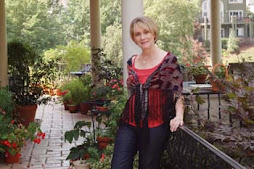
My former thesis advisor, Elissa Schappell, along with some other writer friends wrote and compiled a short story collection entitled The Friend Who Got Away. Since this week’s topic discusses conflict, it’s a worthy way to end the week.
I remember the first summer my best friend moved away. I was about nine years of age. It still hurts to remember it. We were bosom friends, the kind that share a mutuality that is rare in our culture. Mutuality is when I share my deepest secrets and it is reciprocated. It’s a friendship that deepens over time through trust. The day she pulled out of our neighborhood with her single mom headed for greener pastures, she was excited about a new place to live since our neighborhood was not the best place to grow up. As she excitedly climbed into her mother’s car, I was broken hearted.
But an even more painful parting is when friends remain in the same area, but drift apart. Typically the parting will be blamed on a single incident, but truly it usually starts much further back. It could be that the friendship was birthed out of loneliness and then over time the friends begin to realize that they have little in common except their earlier need for one another. Or a friend might see in you something they need and use you to get that thing and, once they have it, lose interest in you. If a person is carrying around a lot of baggage, they may habitually seek out people to lighten their load; but no one person can “fix” them, so they become disappointed and abandon a friend in search of one who “meets their needs”. When a friendship is carried on only because of one person’s need for your comfort or support, and it isn’t reciprocated, it’s doomed for failure. If you’re the only person doing all of the work, something is wrong.
Fellowship is defined as companionship, of people journeying through life with mutual interests and causes. When that mission changes for one person, there is often a split. At first, the heart is in denial. Quick coffee dates may be arranged or a night out at the movies, but something has changed. You may tell yourself your friend is going through a season and she needs your support. But as you speak, she is not engaged, not in the moment with you. When you share a struggle, she is looking around to see who else she can engage—you’re no longer the flavor of the month.
Finding deeper meaningful friendships can be improved by seeking out friends with your similar pursuits. Start with the things you value and think about what you do in your spare time. To what pursuits are you devoted? What is your depth of understanding of God and how does it compare to your friend’s? Do you seek God’s presence and surround yourself with others who also do?
If a friendship is based on surface interests, be it the pursuit of the material, corporate ladder climbing, or the American god of team sports, that is not the definition of fellowship. Fellowship involves communing with one another, dreaming together, and encouraging one another through healthy mutuality. If your communion is not being reciprocated, it could be that you are settling for a surface friendship that in the long run may bring you no satisfaction. Healthy satisfaction in a friendship should lighten your load rather than weigh you down.
Have a great weekend full of friends who lighten your load and are thrilled to see you coming!
I remember the first summer my best friend moved away. I was about nine years of age. It still hurts to remember it. We were bosom friends, the kind that share a mutuality that is rare in our culture. Mutuality is when I share my deepest secrets and it is reciprocated. It’s a friendship that deepens over time through trust. The day she pulled out of our neighborhood with her single mom headed for greener pastures, she was excited about a new place to live since our neighborhood was not the best place to grow up. As she excitedly climbed into her mother’s car, I was broken hearted.
But an even more painful parting is when friends remain in the same area, but drift apart. Typically the parting will be blamed on a single incident, but truly it usually starts much further back. It could be that the friendship was birthed out of loneliness and then over time the friends begin to realize that they have little in common except their earlier need for one another. Or a friend might see in you something they need and use you to get that thing and, once they have it, lose interest in you. If a person is carrying around a lot of baggage, they may habitually seek out people to lighten their load; but no one person can “fix” them, so they become disappointed and abandon a friend in search of one who “meets their needs”. When a friendship is carried on only because of one person’s need for your comfort or support, and it isn’t reciprocated, it’s doomed for failure. If you’re the only person doing all of the work, something is wrong.
Fellowship is defined as companionship, of people journeying through life with mutual interests and causes. When that mission changes for one person, there is often a split. At first, the heart is in denial. Quick coffee dates may be arranged or a night out at the movies, but something has changed. You may tell yourself your friend is going through a season and she needs your support. But as you speak, she is not engaged, not in the moment with you. When you share a struggle, she is looking around to see who else she can engage—you’re no longer the flavor of the month.
Finding deeper meaningful friendships can be improved by seeking out friends with your similar pursuits. Start with the things you value and think about what you do in your spare time. To what pursuits are you devoted? What is your depth of understanding of God and how does it compare to your friend’s? Do you seek God’s presence and surround yourself with others who also do?
If a friendship is based on surface interests, be it the pursuit of the material, corporate ladder climbing, or the American god of team sports, that is not the definition of fellowship. Fellowship involves communing with one another, dreaming together, and encouraging one another through healthy mutuality. If your communion is not being reciprocated, it could be that you are settling for a surface friendship that in the long run may bring you no satisfaction. Healthy satisfaction in a friendship should lighten your load rather than weigh you down.
Have a great weekend full of friends who lighten your load and are thrilled to see you coming!








